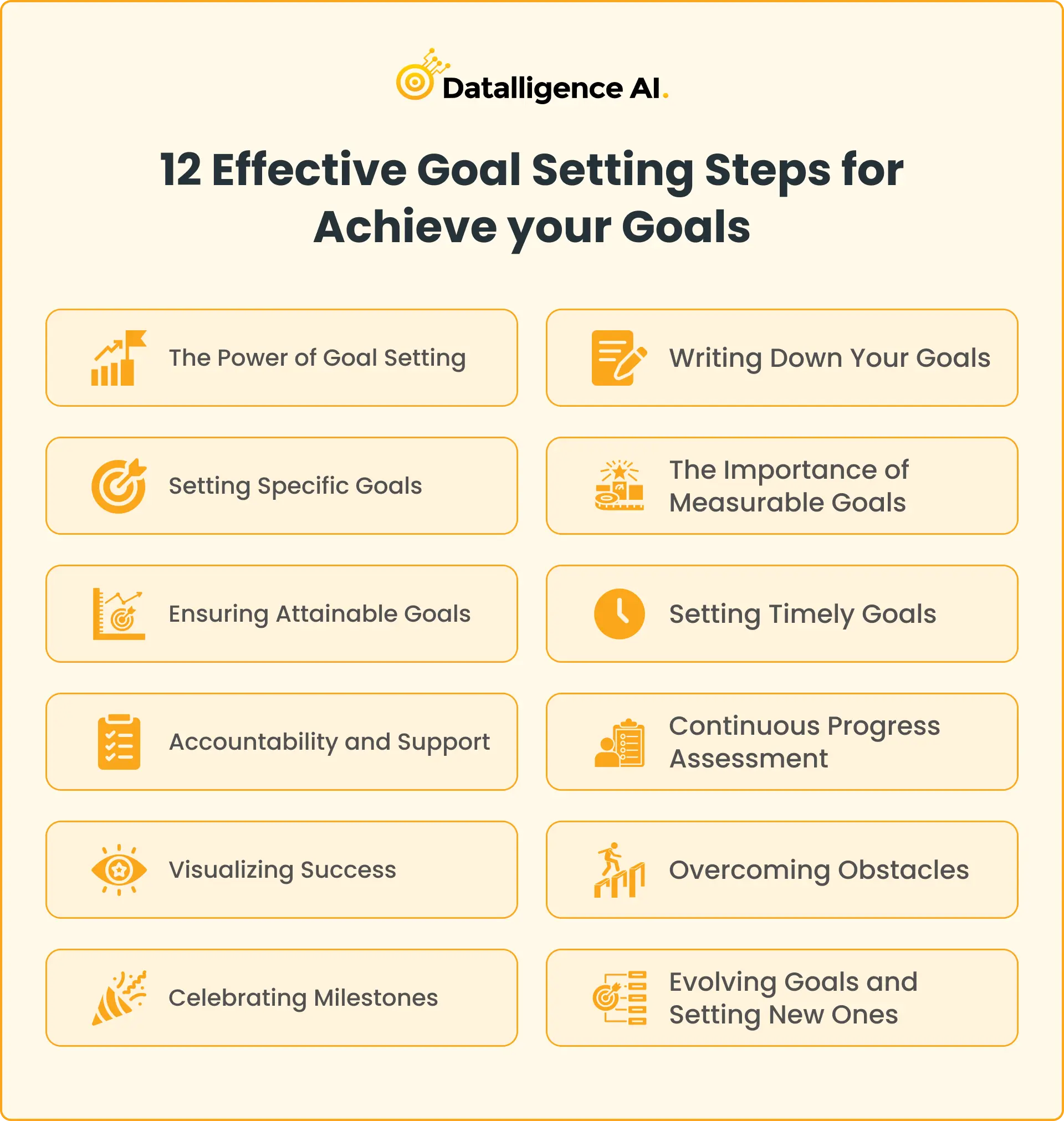
Mastering Goal Achievement: Strategies for Success
Setting Clear and Specific Goals
The foundation of goal achievement lies in setting clear and specific objectives. Define what you want to accomplish with precision. Whether it’s a personal or professional goal, clarity in your objectives provides a roadmap for your efforts and enhances your focus on the desired outcomes.
Breaking Down Goals into Manageable Steps
Large goals can be overwhelming, making it essential to break them down into smaller, manageable steps. This approach not only makes the process more digestible but also allows for incremental progress. Tackling one step at a time builds momentum and boosts your confidence as you move closer to the ultimate goal.
Cultivating a Positive Mindset
A positive mindset is a powerful catalyst for goal achievement. Cultivate an optimistic outlook, believe in your capabilities, and view challenges as opportunities for growth. A positive mindset not only enhances motivation but also enables you to overcome setbacks with resilience and determination.
Creating a Detailed Action Plan
An action plan serves as a roadmap for executing your goals. Outline the specific actions, timelines, and resources required to achieve each step. Having a detailed plan allows you to navigate obstacles more effectively and provides a structured approach to your journey of goal achievement.
Prioritizing and Time Management
Effective goal achievement requires prioritization and efficient time management. Identify tasks based on their importance and urgency, and allocate time accordingly. Set realistic deadlines for each step of your goal, ensuring that your time is utilized efficiently and that you stay on track toward successful outcomes.
Staying Adaptable and Flexible
In the pursuit of goals, unforeseen challenges may arise. Maintaining adaptability and flexibility is crucial. Be open to adjusting your approach, revising your action plan, and learning from unexpected situations. Adaptability ensures that setbacks become opportunities for course correction rather than roadblocks.
Seeking Support and Accountability
Don’t hesitate to seek support on your journey toward goal achievement. Share your goals with friends, family, or mentors who can provide encouragement and guidance. Accountability partners can help keep you on track, provide valuable insights, and celebrate your successes along the way.
Continuous Learning and Skill Development
Goal achievement often involves acquiring new knowledge and skills. Embrace a mindset of continuous learning, seeking opportunities for personal and professional development. Acquiring additional skills not only enhances your capabilities but also positions you for greater success in reaching your goals.
Celebrating Milestones Along the Way
Acknowledging and celebrating milestones is essential for maintaining motivation. Whether it’s completing a significant step or achieving a smaller goal within the larger framework, take the time to recognize and celebrate your progress. Celebrations serve as fuel for sustained momentum and enthusiasm.
Reflecting and Iterating
Regular reflection on your journey is a valuable practice in goal achievement. Assess what has worked well, what can be improved, and any adjustments needed to stay on course. Iteration based on your reflections ensures that your approach remains effective and aligned with the evolving nature of your goals.
Goal Achievement Tips: Your Path to Success
For a comprehensive guide on goal achievement strategies and insights, visit Goal Achievement Tips. This resource offers practical tips, expert advice, and additional resources to empower you on your journey. By implementing these strategies—setting clear goals, staying adaptable, seeking support, and celebrating achievements—you can master the art of goal achievement and turn your aspirations into tangible successes.
